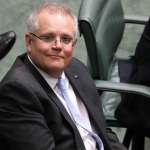Babies, Students & Migrants – New Laws for 2019

At the start of every year, new state and federal laws come into effect across the nation.
This year, babies, students, migrants, politicians and credit card users are amongst those most affected by laws which came into effect earlier this month.
Here’s a quick rundown of the new laws.
Foreign political donations
New laws have been enacted which prohibit donations of $1,000 or more from foreign donors.
This reform has been described as the most “significant change to funding and disclosure in some time”. It also prohibits foreign governments and state-owned enterprises from making gifts of $100 or more to political parties and campaigners if the funds are used for electoral purposes.
The rationale is to reduce the likelihood of foreign entities influencing our politicians through large donations, thereby reducing actual corruption and the perception of corruption in politics, and enhancing public confidence in the Australian political system.
While the law has been a long time coming in Australia, with the bill bandied around Parliament like a hot potato before it was eventually passed. With its implementation, Australia joins the two-thirds of countries internationally that ban foreign political donations, including comparable liberal democracies such as the UK, US and Canada. New Zealand caps them at NZ$1,500.
Vaccination for babies
Western Australia has now joined NSW, Queensland and Victoria in introducing laws about un- or under-vaccinated children attending childcare and kindergarten. The “no jab no play” law requires childcare operators and schools to collect data on vaccination rates of students, and report them to the state government.
While immunisation rates are high across the board in Australia, the Far North Cost of New South Wales and Perth have rates that are well below the national average.
The laws are highly controversial to say the least, with the many medical professionals arguing that vaccinations save lives and should be compulsory, while anti-vaccine campaigners pointing to a growing body of research which suggests that vaccinating children can be harmful.
The laws allow state governments to order bans on unvaccinated children attending child care facilities in the event of a (vaccine-preventable) disease outbreak.
Educators have expressed concerns that such laws can hinder access to education, particularly in early childhood – a time in life when there is significant mental and physical development which is facilitated by play, learning and socialising.
Credit cards
Our financial institutions are firmly in the spotlight with a raft of changes expected to be introduced over the coming months as a result of the Royal Commission into Banking and Finance.
There is already a ban on backdated interest charges on credit cards and a requirement that new applicants be assessed on their ability to repay an entire credit card limit.
The current and forthcoming reforms are designed to better protect consumers from irresponsible lending practices that can result in high-levels of debt that is unable to be managed and repaid.
Good news for students
There’s good news for students, with the federal government imposing a lifetime limit on HELP loans, capping these at $104,000 for most students and $150,000 for medicine, dentistry, or vet science.
Transport costs will rise.
The news is not so good for motorists, with road tolls set to increase on the Cross City Tunnel, Eastern Distributor, the Lane Cove Tunnel and the Hills M2 Motorway.
Public transport in Victoria and Queensland will also become more expensive.
Migrants will need to wait longer for assistance
The news is also dim for new migrants, who now have to wait up to four years for some welfare payments.
Newly arrived migrants will not be allowed to access Newstart for their first four years in Australia, and waiting time for carer payments, parental leave pay and the Family Tax Benefit swill be one-to-two years, depending on circumstances.
Family Court
There are also big changes underway for the family court, which is being rolled into the federal circuit court.
The move is part of government efforts to reduce the backlog in the family court, which have caused devastating delays for many families.
The merger is also designed to reduce the burden of costs which many families have faced trying to have disputes resolved through the system.







